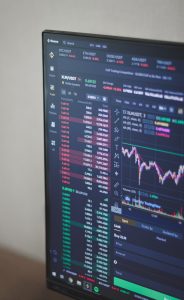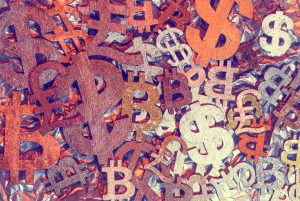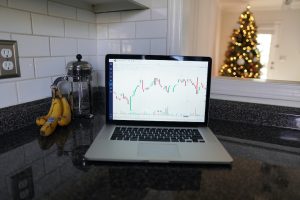Forex, or the foreign exchange market, is the largest financial market in the world with a daily turnover of over $5 trillion. It is a decentralized market where currencies are traded 24 hours a day, five days a week. However, there are times when forex stops trading, and it is important to understand when these times are to effectively plan your trades and manage your risk.
Forex trading hours
Forex trading hours vary depending on the trading session. There are three major trading sessions in the forex market: the Asian session, the European session, and the US session. Each session has its own opening and closing times, and these times are based on the local time of the financial centers in each region.
The Asian session begins with the opening of the Tokyo market at 7:00 PM EST (12:00 AM GMT). It is followed by the opening of the Hong Kong and Singapore markets at 9:00 PM EST (2:00 AM GMT). The Asian session ends with the closing of the Tokyo market at 4:00 AM EST (9:00 AM GMT).
The European session starts with the opening of the London market at 3:00 AM EST (8:00 AM GMT). It is the most active trading session, as it overlaps with the Asian session and the US session. The Frankfurt and Paris markets open at 2:00 AM EST (7:00 AM GMT) and 3:00 AM EST (8:00 AM GMT), respectively. The European session ends with the closing of the London market at 12:00 PM EST (5:00 PM GMT).
The US session begins with the opening of the New York market at 8:00 AM EST (1:00 PM GMT). It is the second most active trading session, as it overlaps with the European session. The US session ends with the closing of the New York market at 5:00 PM EST (10:00 PM GMT).
Weekend trading
Forex trading is not available on weekends. The markets are closed from Friday at 5:00 PM EST (10:00 PM GMT) until Sunday at 5:00 PM EST (10:00 PM GMT). This means that traders cannot open or close positions during this time, and any open positions will be subject to potential price gaps when the markets reopen.
However, some brokers offer weekend trading on certain currency pairs. This is known as weekend gap trading, and it allows traders to take advantage of market movements that occur over the weekend. It is important to note that weekend gap trading carries a higher risk, as the market is less liquid and more volatile during this time.
Holiday trading
Forex trading is also affected by holidays in different countries. When a holiday occurs in a major financial center, it can affect trading volumes and volatility in the forex market. Some holidays that can impact forex trading include:
– New Year’s Day
– Martin Luther King Jr. Day
– Presidents’ Day
– Good Friday
– Easter Monday
– May Day
– Memorial Day
– Independence Day
– Labor Day
– Thanksgiving Day
– Christmas Day
During holidays, forex trading volumes may be lower than usual, and the market may be less volatile. Some brokers may also close their trading platforms during holidays, so it is important to check with your broker for specific holiday trading hours.
Conclusion
In conclusion, forex trading is available 24 hours a day, five days a week. However, there are times when forex stops trading, such as on weekends and during holidays. It is important to understand these trading hours to effectively plan your trades and manage your risk. Always consult with your broker for specific trading hours and holiday schedules.





